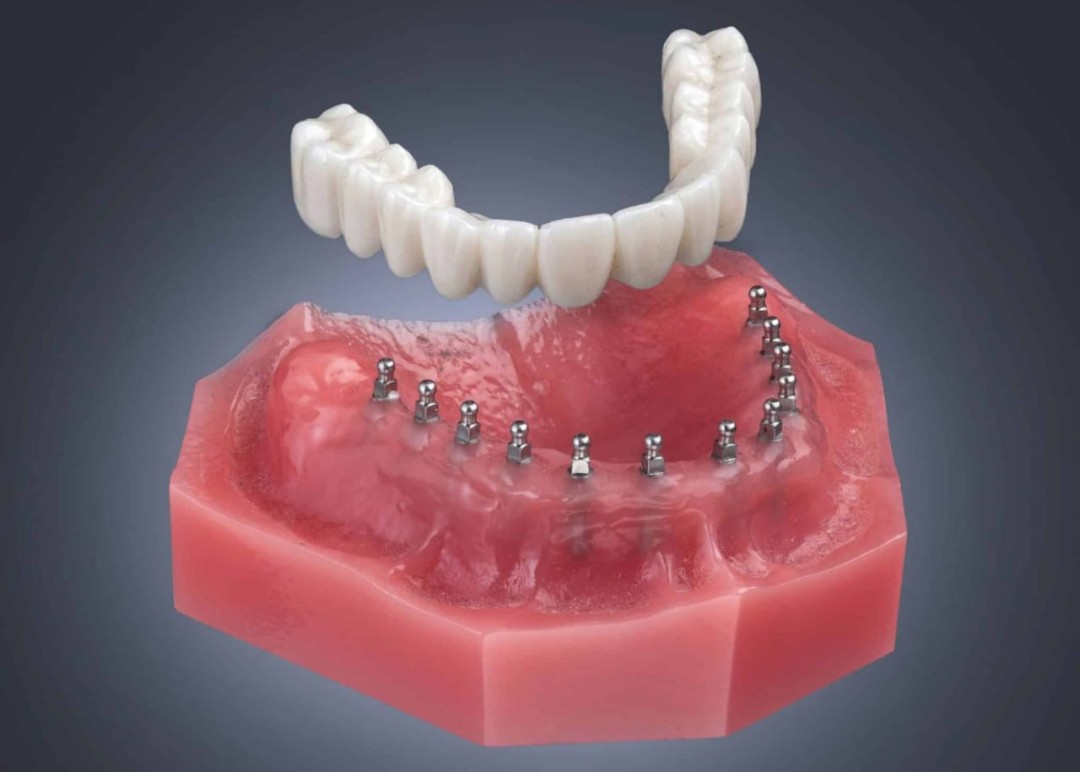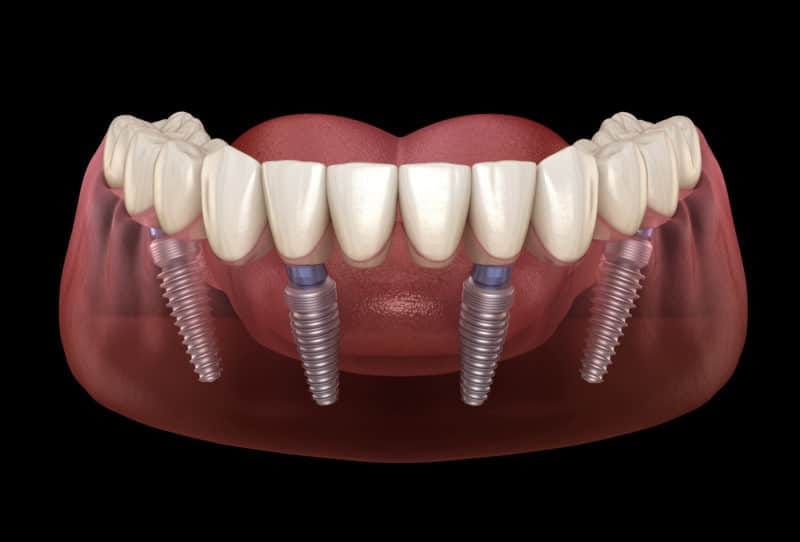Dental implants can give you a brand-new smile, but just like anything else in your body, they need care. While most people do great with their implants, sometimes little problems can pop up. If you catch these signs early, you can fix them before they become serious.
This guide will help you spot those red flags, understand what causes them, and know exactly what to do if you think something’s off. We’ll also share simple tips to keep your implant strong and your smile bright. Let’s keep that happy smile going strong for years to come.
Common Warning Signs Something’s Not Right with Dental Implants

When it comes to dental implants Toronto, knowing how to recognize and address potential complications is key to keeping your smile healthy. Although dental implants are a reliable and long-lasting solution for missing teeth, issues can occasionally arise. Catching problems early is crucial to prevent further complications. Let’s explore the common warning signs that may indicate your dental implant needs professional attention.
Pain or Discomfort That Doesn’t Go Away
It’s normal to feel some soreness right after getting a dental implant, but if the pain sticks around for days or gets worse, it could be a sign that something’s wrong. Ongoing pain might mean infection or that the implant isn’t healing properly. Don’t ignore persistent discomfort—check in with your dentist.
Swelling and Redness Around the Implant
Your gums might swell or look red after surgery, but this should calm down quickly. If you notice swelling, redness, or tenderness that doesn’t improve, it could mean infection or irritation. Keep an eye on your gums, and if they start to look unhealthy, it’s time to get checked.
Loose or Wobbly Implant
A dental implant should feel stable, like a natural tooth. If it feels loose or wobbly, that’s a warning sign. This can happen if the bone around the implant isn’t strong enough or if the implant hasn’t fused well. A loose implant needs prompt attention to avoid more damage.
Bad Taste or Smell in Your Mouth
Sometimes, infection near the implant causes a bad taste or smell that won’t go away, even with brushing. This can be an early sign of gum disease or infection that needs to be treated.
Gums Pulling Away from the Implant
If your gums start to pull back and expose more of the implant, this is called gum recession. It can make the implant less stable and increase the risk of infection. Healthy gums are important to support your implant.
What Causes Dental Implant Problems?
Understanding what causes dental implant problems is important if you want to keep your new teeth healthy and strong. Dental implants usually work well, but certain things can make issues more likely. Let’s dive into the main causes of complications so you can avoid them.
Poor Oral Hygiene
One of the biggest reasons dental implants run into trouble is poor oral hygiene. If you don’t brush and floss regularly, bacteria can build up around the implant. This can cause infections, gum disease, or even bone loss, which may loosen the implant. Keeping your mouth clean is key to preventing problems.
Smoking and Certain Health Conditions
Smoking is harmful not just for your lungs but also for your dental implants. It slows down healing and makes infections more likely. People with health problems like diabetes or weak immune systems may also have a harder time healing after implant surgery. These conditions can increase the risk of implant failure if not properly managed.
Biting Hard Foods and Teeth Grinding
Dental implants are strong, but biting down on very hard foods; like ice, nuts, or hard candy; can damage them. Also, grinding or clenching your teeth, especially at night, puts extra pressure on implants. Over time, this can cause implants to loosen or even break. Using a mouthguard or avoiding hard foods can protect your implant.
Poor Implant Placement or Bone Issues
Sometimes, problems happen if the implant wasn’t placed correctly or if there wasn’t enough healthy bone to support it. The bone needs to fuse well with the implant to hold it in place. If this doesn’t happen, the implant might fail. That’s why it’s important to choose an experienced dentist who carefully plans the procedure.
What to Do If You Notice a Problem with Your Dental Implant

Recognizing problems with your dental implant early is important. The sooner you act, the better the chances are of fixing the issue without losing your implant. If you notice anything unusual, don’t panic; here’s what you should do.
Contact Your Dentist Right Away
If you feel pain, swelling, or notice your implant is loose, the first thing to do is call your dentist. Don’t wait for the problem to get worse. Your dentist can check what’s going on and suggest the right treatment. Early care can often save your implant and prevent bigger problems.
Follow Home Care Advice
While waiting for your appointment, follow any instructions your dentist gives you. This might include rinsing your mouth with salt water or using a gentle toothbrush. Avoid chewing on the side with the implant and skip hard or sticky foods. Taking good care at home helps reduce irritation and infection.
Be Prepared for Possible Treatments
Your dentist might take an X-ray or examine your gums to find the cause of the problem. Sometimes, a simple cleaning or antibiotics can fix an infection. Other times, more involved treatment may be needed. In rare cases, the implant may need to be removed, but this is usually a last option.
Stay Calm and Don’t Ignore It
It’s normal to worry if something feels wrong, but staying calm helps you make smart choices. Ignoring symptoms or waiting too long can lead to more damage and make it harder to fix. Acting quickly is the best way to protect your dental implant and your smile.
How to Keep Dental Implants Healthy
Taking good care of your dental implants is the best way to make sure they last for many years. Healthy implants mean a happy smile, and keeping them strong isn’t as hard as you might think. Let’s go over some simple habits that can keep your implants in top shape.
Brush and Floss Regularly
Just like your natural teeth, dental implants need daily brushing and flossing. Use a soft-bristled toothbrush to clean around the implant gently. Flossing helps remove food and plaque between your teeth and implant where your brush can’t reach. This stops bacteria from building up and causing problems.
Use Mouthwash and Avoid Harsh Products
Rinsing with a mild, alcohol-free mouthwash can help keep your gums healthy. Avoid strong or abrasive toothpaste and mouthwashes with alcohol because they can irritate your gums and the implant area. Gentle care keeps the tissues around your implant comfortable and healthy.
Visit Your Dentist Often
Regular dental checkups, usually every six months, are important. Your dentist will clean areas you might miss and check your implant for any early signs of trouble. Professional cleanings and exams help catch problems before they become serious.
Avoid Bad Habits
Try to avoid smoking and chewing hard foods like ice or hard candy. These can damage your implant or slow down healing. If you grind your teeth at night, ask your dentist about a night guard to protect your implants and natural teeth from damage.
Eat Soft Foods After Surgery
Right after getting your implant, stick to soft foods to help the area heal. Over time, you can return to your normal diet, but be careful with anything too hard or sticky.
Conclusion
Dental implants can last a long time if you take care of them. Know the signs, act fast, and don’t skip your checkups. A healthy implant means a healthy smile! With just a little care and attention, you’ll enjoy your new teeth without worries.
Media Contact
Company Name: Osmindenture
Contact Person: Dr. Osmin
Email:Send Email
City: Toronto
Country: Canada
Website: https://www.osmindenture.com/
